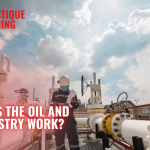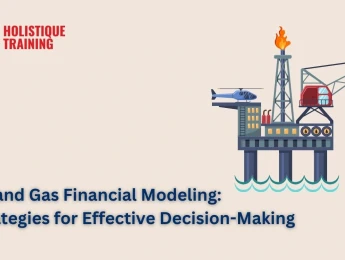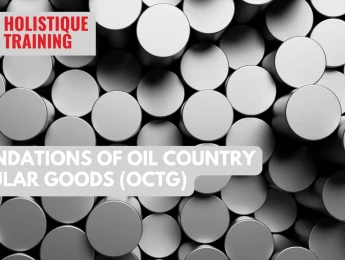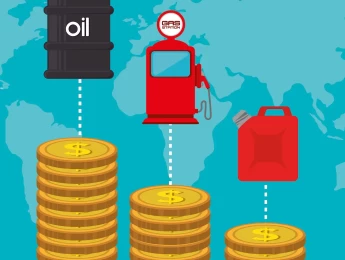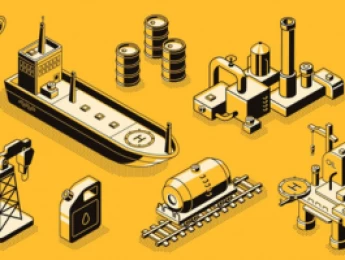Oil and gas are the world's most common fuel sources and play a pivotal role in the economy. While it’s easy to assume fuels appear on our doorsteps for use in our homes, oil collection, processing, and distribution are incredibly complex procedures.
State-of-the-art technology is required to produce bulk gasoline, kerosene, and diesel worldwide. Because of the environmental effects, this practice requires strict management and an understanding of the fuel industry to plan, evaluate, and execute operations successfully without excessive environmental damage.
For individuals in this field, having a broad knowledge of technology and gas and oil filtration systems is essential, allowing companies to produce the purest products to sell. The advertising and sale of such products also need to be considered in-depth to ensure that the sale of gas and oil is conducted responsibly without excessive wastage. These process frameworks require advanced strategic thinking and decision-making abilities to ensure all operations are cost-effective, profitable, and safe.
Upon completion of this course, participants will be able to:
- Fully understand the procedures involved in fuel production.
- Develop a deeper knowledge of safe crude oil transportation.
- Create innovative frameworks for fuel business development.
- Understand the health and safety requirements of a fuel production company.
- Gain access to skilful marketing and sales procedures surrounding gas and oil.
- Explore the detailed processes behind gas filtration.
- Gain a greater appreciation for the industry and uncover the struggles of producing safe fuel reserves.
- Evaluate current procedures and try to mitigate issues faced with fuel production.
- Determine the most cost-effective methods for fuel distribution.
- Appreciate the effects of crude oil use on the environment.
This course is perfect for anyone in the fuel production industry responsible for producing, distributing, or marketing gas and oil products. It would be most beneficial for:
- Business Development Managers
- Business Owners
- Operations Managers
- Gas & Oil Distributors
- Data Analysts
- Distribution Planners
- Functional Managers of Petroleum Production
- Health & Safety Personnel
This course will be a fully interactive learning experience, including insightful presentations and trainer-led seminars on fuel production processes and environmental impacts.
Group discussions and practical planning frameworks will allow participants to fully understand their role within the fuel industry and work towards creating a more accurate and productive process with the most up-to-date technology whilst adhering to legal and safety standards.
Day 5 of each course is reserved for a Q&A session, which may occur off-site. For 10-day courses, this also applies to day 10
Section 1: The Origins of Petroleum
- The introduction of oil and gas for energy usage.
- Petroleum chemistry and its importance.
- Geology and hydrocarbon deposits.
- Discovering energy sources.
- Surface fluids and well-sourcing.
- The development and production of oil and gas sales frameworks.
Section 2: Oil Stakeholder & Partnership Relationships
- The requirements for mutually beneficial energy company relationships.
- National and multinational connections.
- Integrated and non-integrated companies.
- OPEC - Organisation of Petroleum Exporting Companies.
- IEA - The International Energy Agency
- Production sharing agreements and contractual requirements.
Section 3: Gas Operational Processes
- Filtration processes and chemical waste removal.
- Sulphur creation, recovery, and uses.
- Safe storage and transportation of gases.
- Inlet separation.
- Dehydration and compression.
- DewPoint control and byproduct recovery processes.
- LNG production.
Section 4: Oil Operational Processes
- Oil refining procedures.
- Safe and cost-effective conversion processes.
- Distilling and blending processes.
- Oil quality improvement.
- Transportation and profitability.
- Overseas transport frameworks.
Section 5: Profits & Losses and Creating a Cash Flow Curve
- Creating an accurate costing framework to review budgets.
- Estimating facilities and technology prices.
- Cost curves and historical data analysis.
- Recovering from financial losses.
- Forecasting for the future.
- Developing helpful cash flow models.
- Budget evaluation and effective cost-saving exercises.
- Maximum exposure and payback options.
- Unit technical costing.
- Net present values.
Section 6: Assessing Risks
- Health & Safety procedures.
- Developing staff safety buy-in.
- Risk assessments and mitigation factors.
- Contingency plans.
- Decision-making and strategic thinking around areas of uncertainty.
- Evaluating procedures and auditing.
- Accurate record-keeping and planning for the future.
Upon successful completion of this training course, delegates will be awarded a Holistique Training Certificate of Completion. For those who attend and complete the online training course, a Holistique Training e-Certificate will be provided.
Holistique Training Certificates are accredited by the British Assessment Council (BAC) and The CPD Certification Service (CPD), and are certified under ISO 9001, ISO 21001, and ISO 29993 standards.
CPD credits for this course are granted by our Certificates and will be reflected on the Holistique Training Certificate of Completion. In accordance with the standards of The CPD Certification Service, one CPD credit is awarded per hour of course attendance. A maximum of 50 CPD credits can be claimed for any single course we currently offer.
- Course Code IND01-110
- Course Format Classroom,
- Duration 5 days


